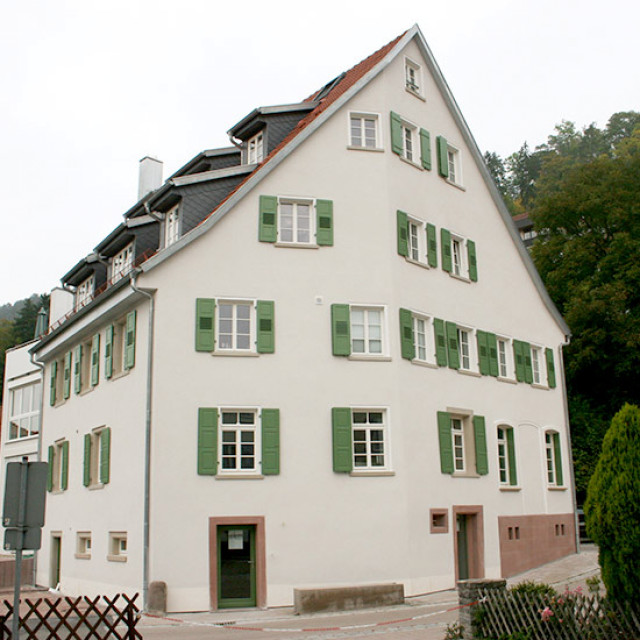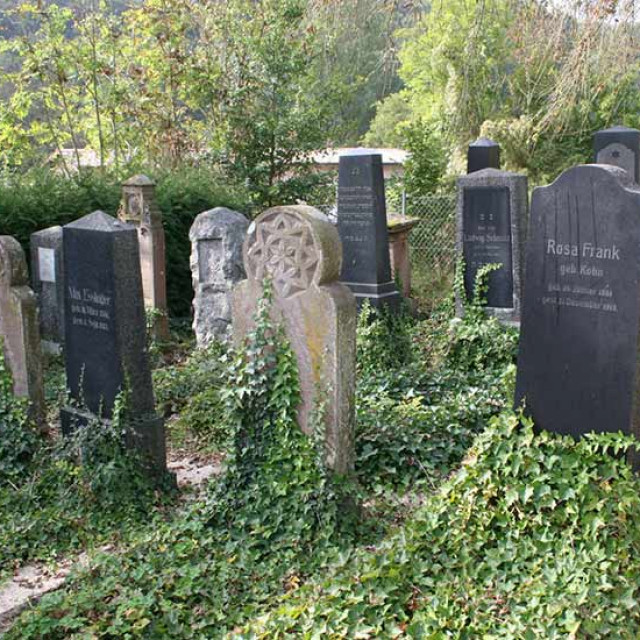Horb
The Jewish community of Horb
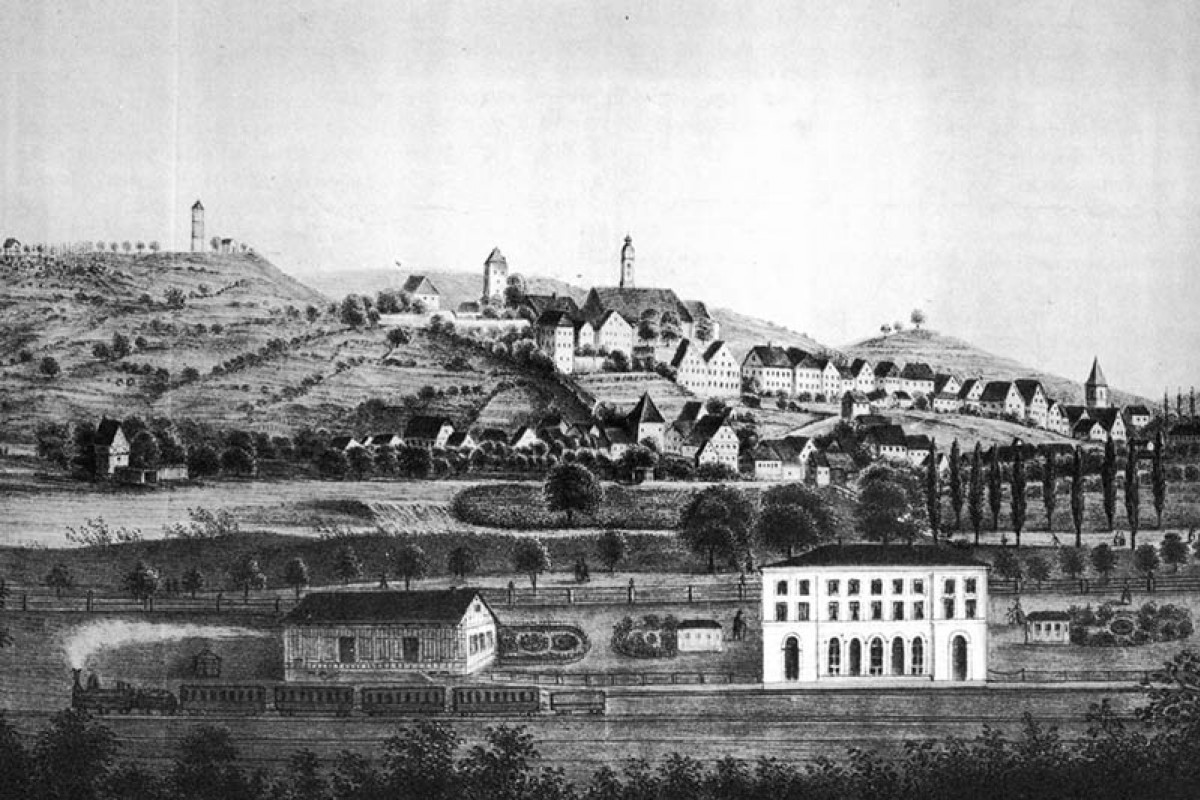
The Jewish community in Horb
There were Jews living in Horb as early as the Middle Ages. In those days the town belonged to the county of Hohenberg in ‘Vorderösterreich’ (former Hapsburg territories in what are today Alsace, Baden, Württemberg and Bavaria). In 1348, Jews in Horb died at the stake on Hohenberg or were beaten to death because they were blamed for the plague which was raging all over Europe. Later, Jewish families continued to settle in Horb, but they had to endure very restrictive regulations. Stable Jewish communities finally grew up in those villages which were ruled by local noblemen and the Knights of Saint John, i.e. in Mühringen, Rexingen, Baisingen, Dettensee, Nordstetten and Mühlen. In 1806, Horb became an important administrative town in the Kingdom of Württemberg. Little by little the Jews attained the same rights as the Christian population and moved from the villages into the surrounding towns and cities.
History of the Jewish Community Horb
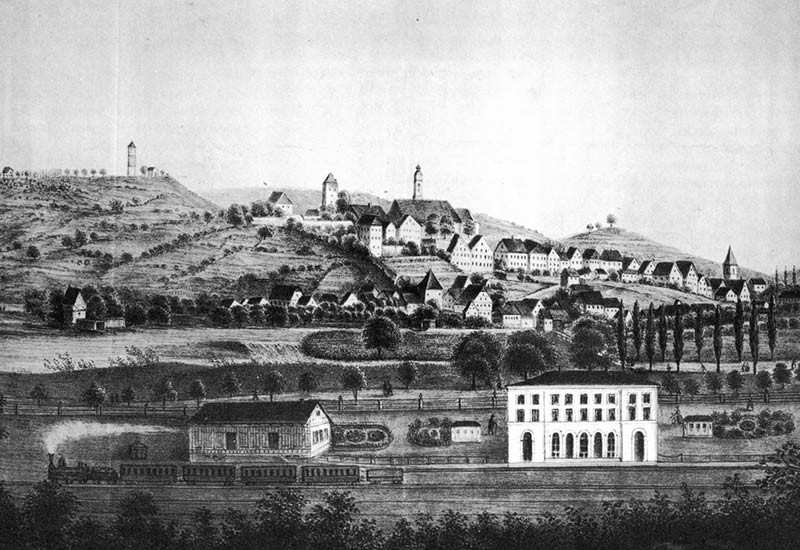
The community in Horb was the youngest of the six Jewish communities in what is today the district of Horb. In the 19th century, Jews in Württemberg gradually received the same civil rights as Christians. They could now choose their place of residence and their occupation. Many families took advantage of their new rights and moved from the villages to the towns and cities in the second half of the 19th century. Horb was situated at a railroad junction and was an aspiring town, a centre of civil service. As such it offered Jewish traders good opportunities for development.
In 1900, 134 Jewish citizens lived in Horb, forming 5.3% of the total population. In 1903, they founded a community and bought a site above the road to Mühlen for their cemetery. A simple Prayer Room with two connected rooms in the house of Schwarz the cattle-dealer, near Ihlinger Gate, was already there. In 1913, the seat of the rabbinate was transferred from Mühringen to Horb. Dr. Abraham Schweizer was appointed district rabbi.
Jewish businessmen in Horb
Hugo Frank from Nordstetten moved his textile business to Horb in 1864 and a year later he built a prestigious premises in an excellent location.
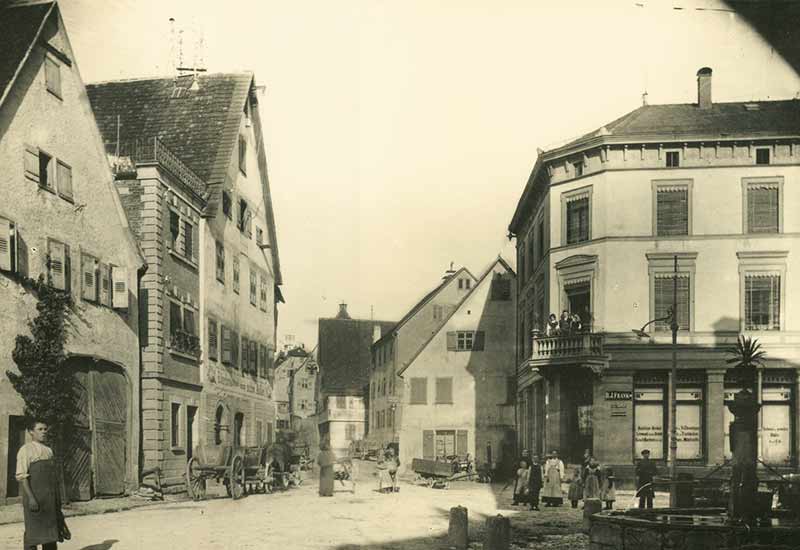
More businessmen followed with their families, so that from 1864 to 1890 the Jewish population increased from six to 101 members. For example, the Gideon family came from Mühlen and founded a soap factory in Horb; the banker Adolf Esslinger came from Mühringen; Hermann Tannhauser, proprietor of a shoe-shop, came from Dettensee; Jakob and Lippmann Stern, clothing manufacturers, came from further away, from Niederstetten in Hohenlohe.
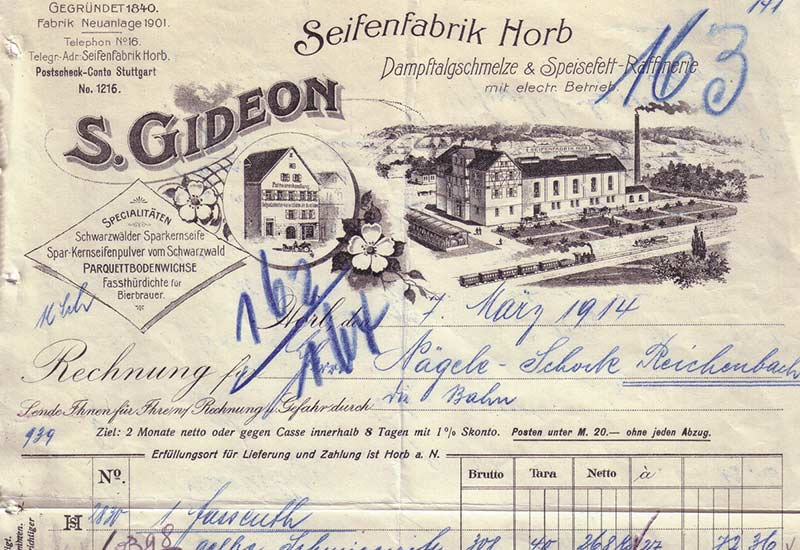
The Jewish families lived in harmony with their Christian neighbours. The men were in associations and in the town council. Their shops and businesses were popular with customers.
Jewish dignitaries
Dr. Abraham Schweizer, the rabbi, and Dr. Joseph Rosenfeld, a medical doctor, were among the dignitaries of the town. Jewish men, like their Christian neighbours, served as soldiers in World War I and were killed or injured, and decorated. The children attended Christian schools and had religious instruction from the rabbi.
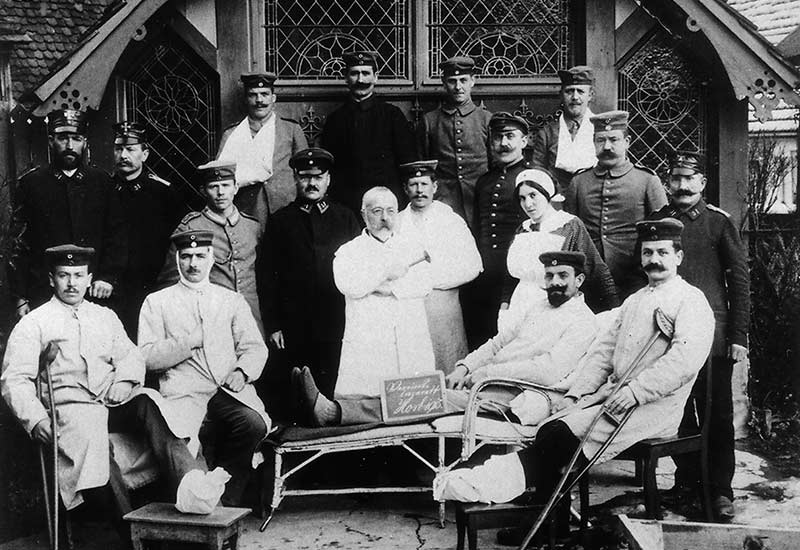
Distress and destruction of the Jewish community
The climate changed when the Nazis took over in 1933. On April 1st,1933, Jewish businesses were to be boycotted in Horb as elsewhere. SA-men took up position in front of them. Jewish citizens faced exclusion and were victims of rabble-rousing. The newspaper ‘Schwarzwälder Volksblatt’ was brought into line and served as stimulus for the aggression. As early as 1933, the first family fled to France. Others fled in subsequent years, mainly to the USA.
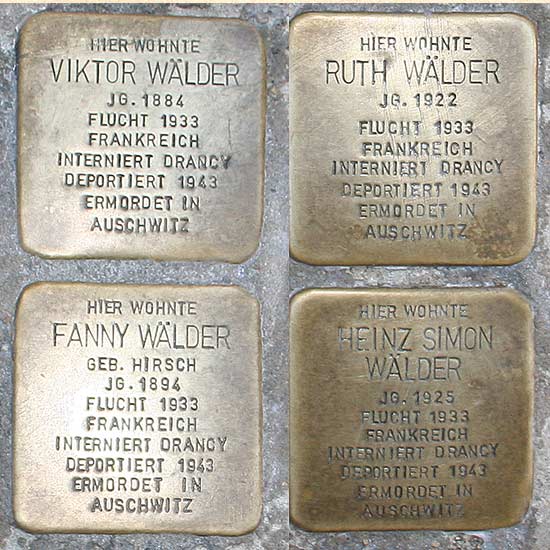
After the defilement of the Prayer Room and the plundering of Jewish shops on November 9th and 10th ,1938, the majority of Jewish men were arrested and taken away to the concentration camp in Dachau. After their release, some families still managed to emigrate in 1939. On December 25th ,1938, two days after his return from the concentration camp in Dachau, Heinrich Stern died as a result of ill-treatment. His clothing factory was closed under duress as were other business premises of Jewish families.
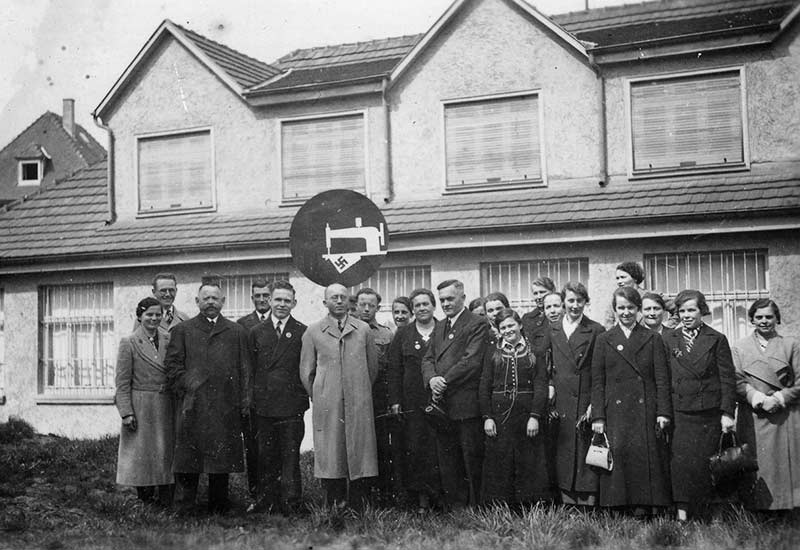
The remaining Jews were forced to move from Horb to Rexingen in the summer of 1941. From there they were deported to Riga and Theresienstadt in 1941 and 1942 respectively. There were no survivors.
